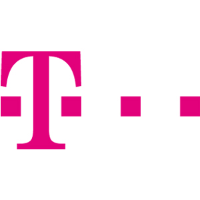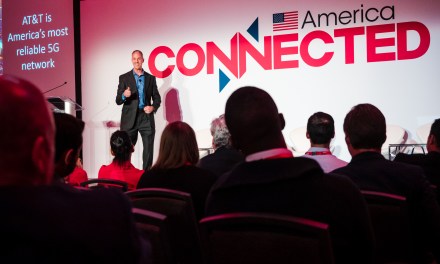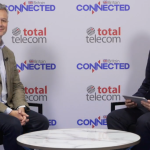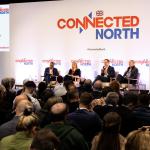Viewpoint
Ahead of the Total Telecom Congress 2017 we caught up with Deutsche Telekom to find out a little more about their work in the smart home space. We spoke about their White Label Smart Home Portfolio, the key opportunities and challegnes for telcos in the connected home space, and what the future of the technology looks like.
Smart home has become a key strategic priority for Deutsche Telekom, can you outline what you feel are the key initiatives that have generated interest among partners and client organisations?
The most important overall initiative here at Deutsche Telekom has been the development of our international White Label Smart Home Portfolio. We have seen considerable market interest in the offer, and perhaps most importantly for the smart home market as a whole, from a wide range of stakeholders, including telcos, utilities, and retailers. With flexibility at every level of the portfolio, no compromise is required, so partners and clients can deliver the very best products and services to their end users. Our platform supports the Eclipse Foundation/openHAB initiative, and open source software is a core component of its architecture. Comprehensive cooperation between open source projects and relevant bodies is important in order to promote compatibility and standardization.
What are the biggest challenges that Deutsche Telekom sees the smart home sector facing and which are most urgent? Where are the pain points for partners who are bringing smart home products to the market?
Based on an open, white-label platform connecting multiple different smart home devices, services and systems, Deutsche Telekom’s Connected Home portfolio addresses one of the major hurdles facing the smart home sector – the issue of future-proofing. Our white label platform, for instance, provides a method for different components and systems to communicate with each other. It platform supports the Eclipse Foundation/openHAB initiative, and open source software is a core component of the architecture. Being part of Eclipse gives flexibility and leads to a broad adoption of the platform.
For partners, integration into the core portfolio is crucial. Companies need to combine their smart home solutions with their core portfolio and have a simple, clear and good value proposition. Being very clear about how the proposed smart home proposition will augment and improve on the existing business model, rather than fragment or distract from a successful proven model, is key and our White Label Smart Home portfolio does this by making it easy for business partners to enter the market with new services, like new pricing models, and the possibility to integrate smart home functionality into an alternative interoperable gateway.
Security concerns are also beginning to mount, and this will increasingly be a challenge that smart home stakeholders will need to combat. Deutsche Telekom’s smart home offering meets rigorous industry standards, removing one more challenge to partners and customers alike.
What are the biggest opportunities for partners as a result of deploying Deutsche Telekom’s smart home portfolio?
There is huge opportunity in deploying flexible smart home solutions that augment and strengthen your brand, and telcos in particular stand to gain much from the industry. From developing new business models based on existing strengths, to exploring market diversification or expansion, we can support you. Deutsche Telekom’s smart home portfolio offers one of the widest ecosystems on the market as a turnkey proposition, but also a flexible one that allows businesses to mix and match to create their ideal proposition – the combination of extensive track record, proven expertise and broad reach is highly compelling, we believe.
How do you see the smart home industry developing over the coming years?
Voice assistance and integration is certainly a rising tide, with clear standout among the major smart home players. Deutsche Telekom’s plan is, as ever, to follow the open platform route, integrating with as many players on the market as possible. Overall, the market is set for strong growth, as well as continued technical innovation, and with hundreds of devices and new services appearing on the market, which will be smart and connected, we believe that the future favours open standards and ecosystems.
The smart home is also extending beyond four walls, to connect homeowners in building blocks or gated communities in Community IoT. This new smart home business opportunity offers a social community IoT security extension, enhancing traditional Smart Home offerings by extending them beyond one consumer’s home for use within communities, tying many users together and linking residents with facilities management and property managers.
Another significant development is growth. There are challenges ahead, but we firmly believe that the market is set for significant expansion over the coming years. We are beginning to see truly original and innovative business models emerge that will plot the future course of the market. However, those challenges are significant, and include data security, as well as ensuring that open standards are established and understood. Once these are established then growth will surely follow!
What is the single most important change you have witnessed in telecoms since you joined the industry? How has the industry developed, and does that help illuminate the future?
One most important element of the industry today is that finally telcos have the opportunity to become the central control point in their customers home; from fixed line, mobile, internet and TV to smart home devices and services. Navigating the detail in this new world is key, but by staying true to their core business proposition and successfully unifying their offerings, telcos can maintain and grow their role against competition from adjacent markets.
We are beginning to see truly original and innovative business models emerge that will plot the future course of the market – like a window into the future, the shape of things to come is becoming apparent.
What do you think will be the big smart home trends in 2018?
Aside from voice assistance and Community IoT, which I mentioned earlier, integration will continue to be a major trend, as manufacturers seek to break down existing silos between their products and services. Security will continue to be a theme across the board, and rightly so. Smart home devices are at the centre of our lives, occupying a trusted position at the heart of our homes and family lives. Security is unfortunately not a destination but a journey, so there will be an element of evolution, but we believe that having clear consumer-facing industry standards on security will significantly improve trust of smart home products.
Finally, we expect to see rising consumer awareness around the value of their data having an impact on product offerings, as service providers and manufacturers seek to provide tools and interfaces for consumers to manage their own data profiles and sharing permissions.
You can hear more from Deutsche Telekom and a whole host of other industry leading companies at the Total Telecom Congress 2017, being held in London on 31st October and 1st November. To find out more about the conference visit the website or download the brochure here.

















